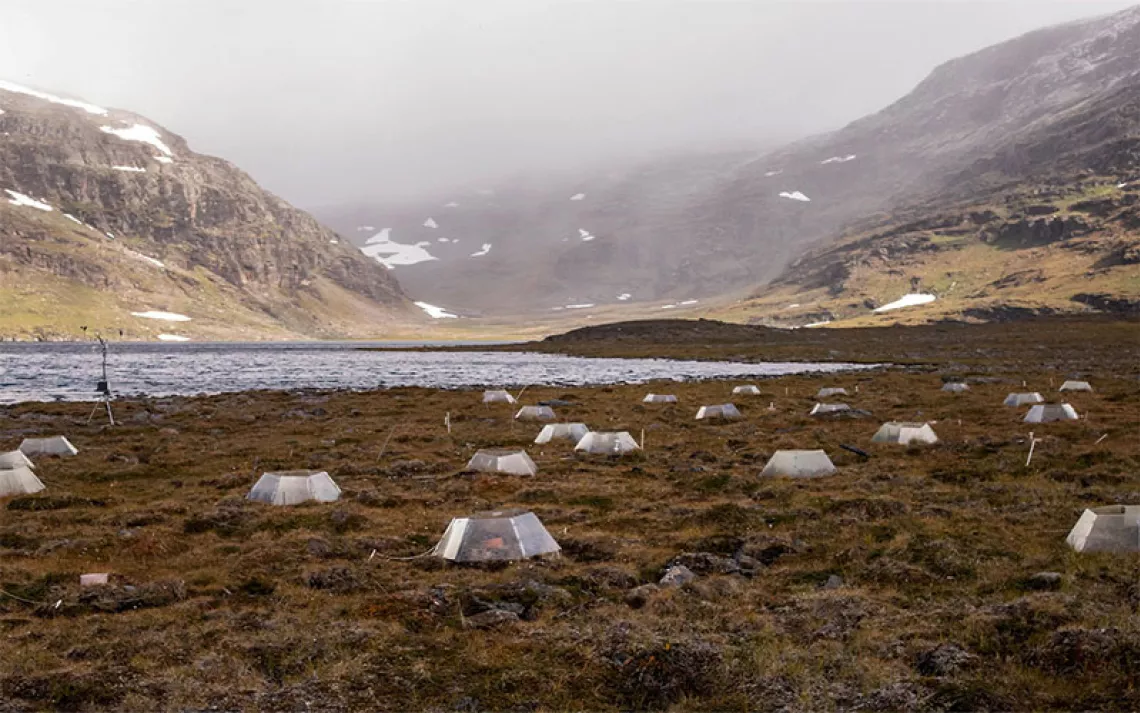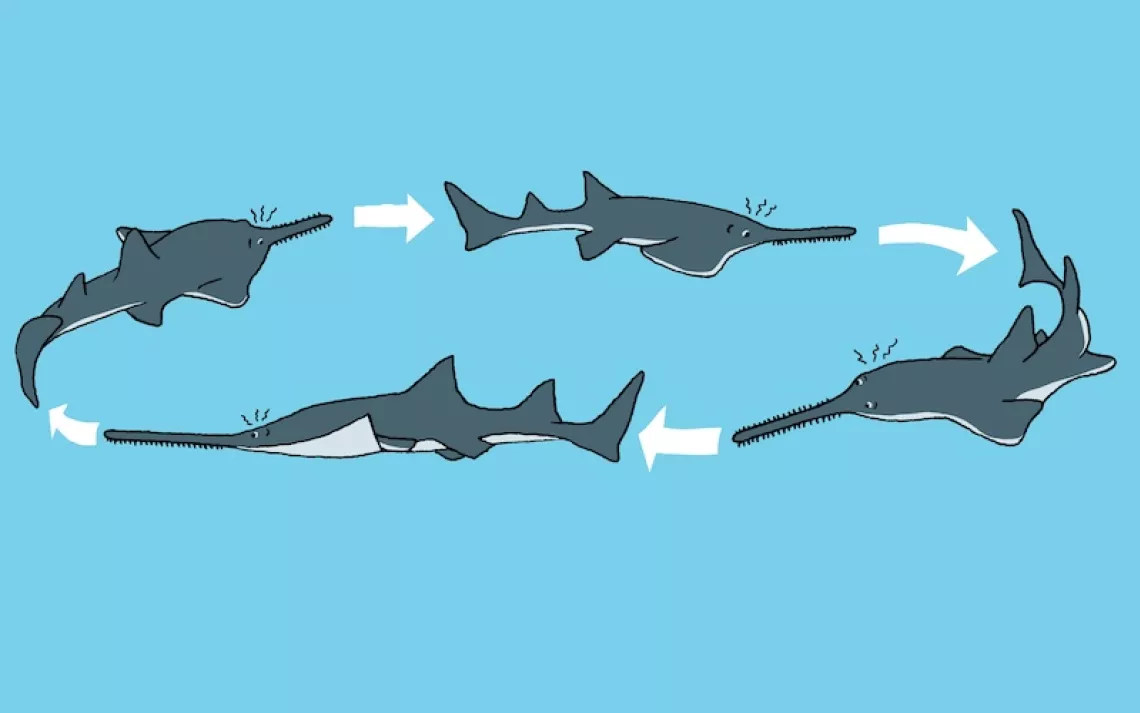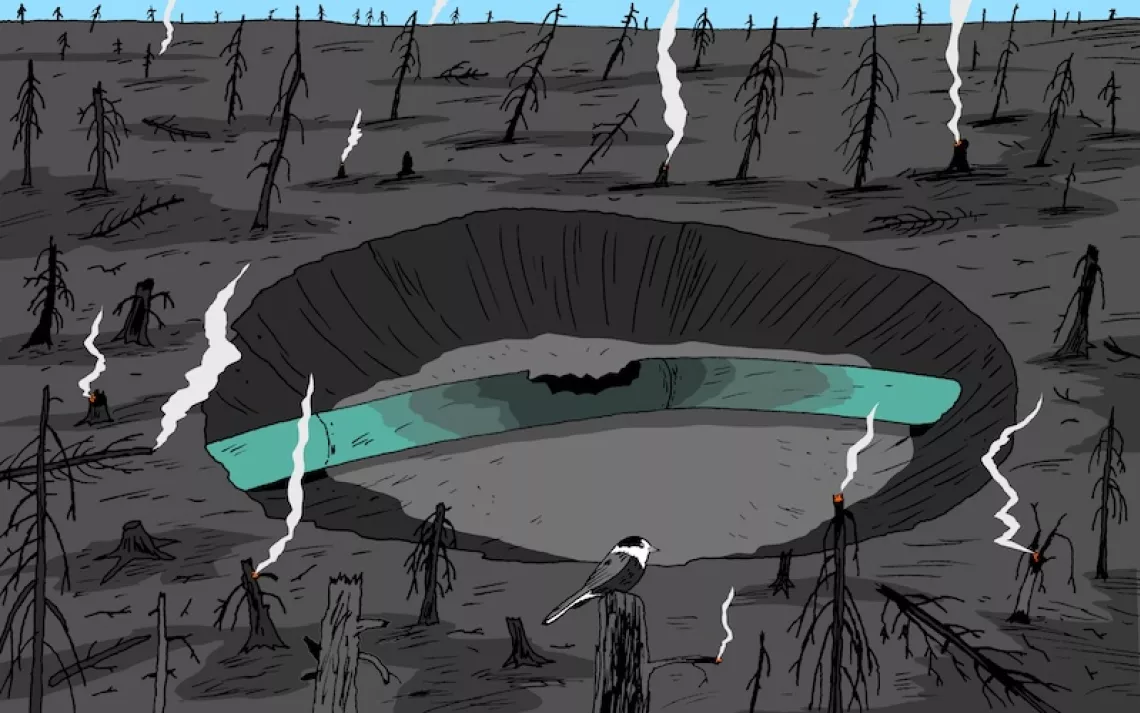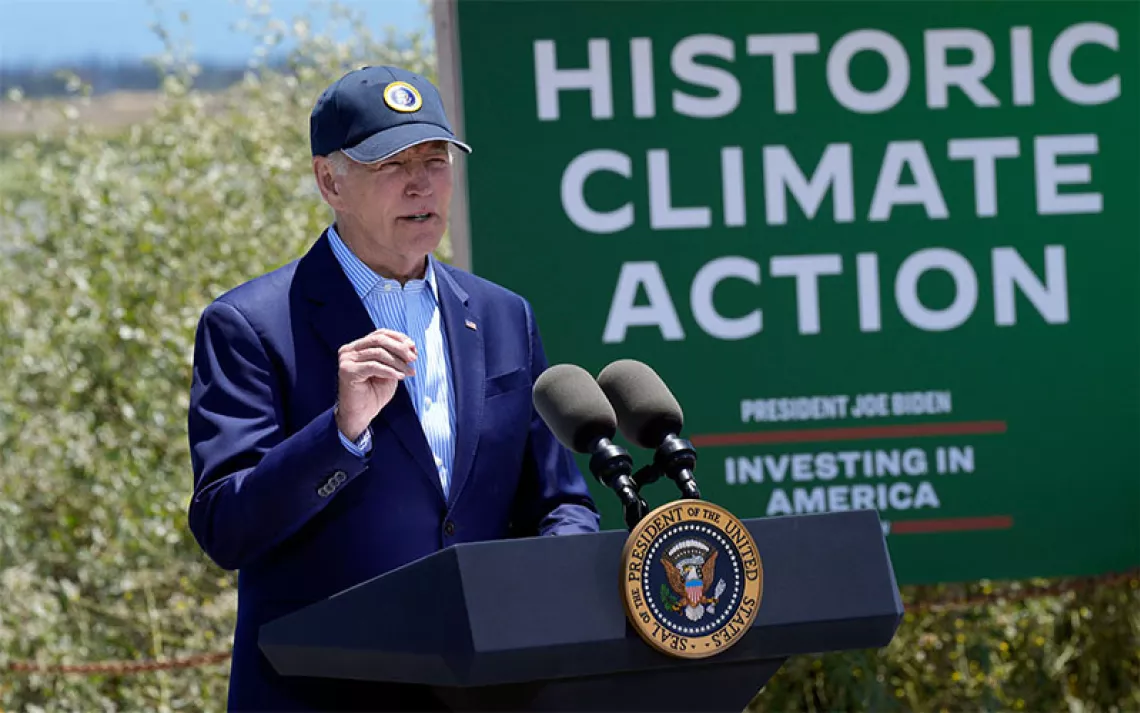At Global Climate Talks, Trump Administration Stands Alone
International community makes clear that it will tackle the climate crisis
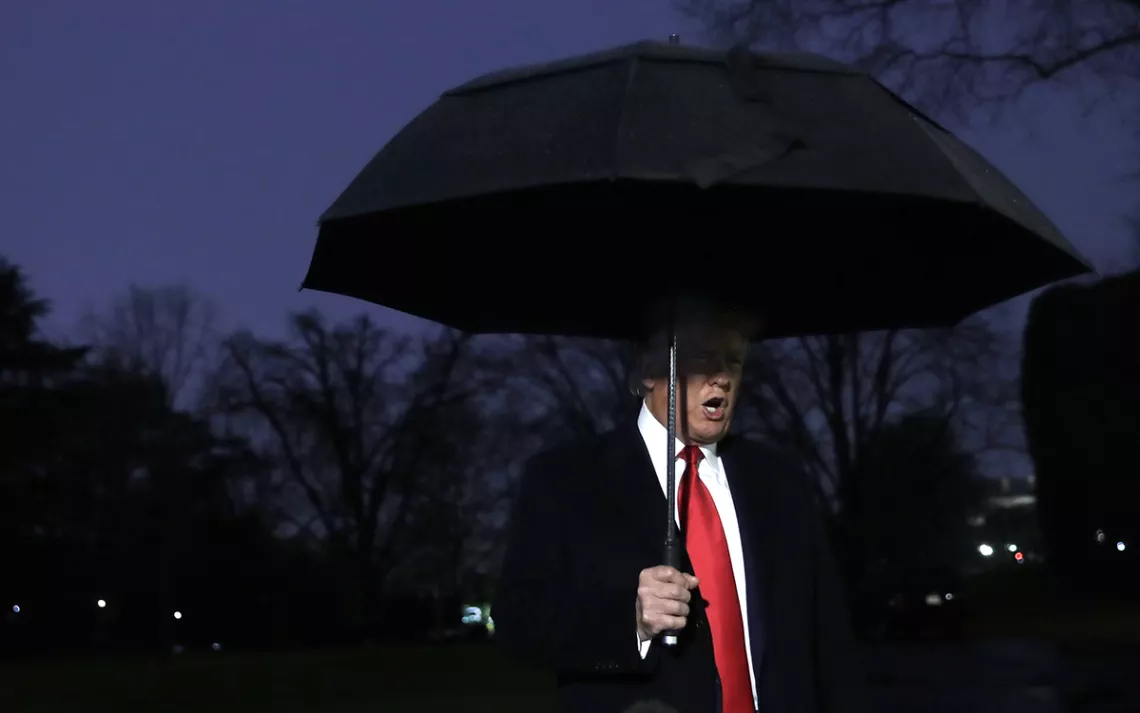
President Donald Trump on the South Lawn of the White House, December 10, 2019 | Photo by AP Photo/Evan Vucci
When Donald Trump talks about climate change, it’s usually in starkly apocalyptic terms. Mind you, he’s not concerned with the looming disasters that scientists are urgently warning about: the killer storms, the hellish fires and droughts, the ravaged ecosystems, and the increasingly incalculable human suffering. No—for Trump, the dire impacts associated with climate change involve what will happen if we do anything at all to stop the world from heating uncontrollably. In his fevered imagination, any effort to contain climate pollution will lay waste to American standards of living, and global cooperation is somehow incompatible with American self-governance.
Here is how Trump described the proposed Green New Deal to his supporters earlier this year: “No planes. No energy. When the wind stops blowing, that is the end of your electric [sic].” The president then pretended to be someone’s spouse hoping that the wind would continue blowing so they could keep watching TV. “Darling, is the wind blowing today? I would like to watch television, darling.”
As apocalypses go, this is of the zombie variety—pure fantasy. But fantasies, however unhinged, are powerful things, so Americans might be forgiven for assuming that many other leaders hold similar, if perhaps more coherent, views. Nothing could be further from the truth. In fact, if there is one message coming from the United Nations–sponsored climate negotiations taking place in Madrid, it is that the rest of the world is united in the conviction that civilization must do more to cut global greenhouse gas emissions. With climate change, as with so many other global issues, Trump stands alone.
While Trump has begun the process of withdrawing the United States from the Paris Agreement, every other country in the world remains committed to the landmark climate agreement that was established in 2015. While Trump is working to undo every federal limitation on greenhouse gas emissions, other high emitters like the European Union are strengthening theirs. And while Trump’s policy reversals have taken the United States off track from meeting our Paris pledge, China, the EU, and India are on pace to meet or overachieve their Paris pledges.
In short, other countries are looking to do more than ever to address the climate crisis.
At a critical summit happening this week in Brussels, EU member states are launching a “Green Deal” of new policies and investments to cut their net greenhouse gas emissions to zero by 2050. The remaining carbon pollution could then be absorbed by forests and other natural systems like soils or removed from the atmosphere by advanced technologies. To meet this ambitious goal, the EU will increase its interim 2030 target for greenhouse gas reductions from the current 40 percent emissions reduction to 50 or 55 percent. Let that sink in and reflect on how different climate politics are in Europe compared with the United States. What is considered wildly ambitious in the US context is considered unacceptably weak on the other side of the Atlantic.
Importantly, the EU’s Green Deal will include a 100-billion euro “just transition” fund to help coal-dependent regions benefit from the shift to a renewable energy economy. As the EU moves toward a clean energy future, it is planning to take care of the people who risk being left behind in the transition. Meanwhile, Trump has offered nothing but empty rhetoric to the communities in the United States that have long relied on the now-uncompetitive coal industry.
While Trump views international cooperation as an affront to US sovereignty, our allies and competitors see it as an opportunity. On the eve of the Madrid talks, officials from China and the European Union met to explore new modes of collaboration; a follow-up heads of state meeting is expected next September. Savvy, forward-looking leaders understand that as countries work to control their emissions in the coming decades, renewable energy technologies will drive the global economy. A farsighted leader—even one focused on “making America great again,” whatever that means—would see the risks of being left behind in the emerging new clean economy and work to position the United States to spearhead this technological revolution. Donald Trump is obviously not that leader.
Trump is not just out of step with the rest of the world; he is at odds with federal legislators, governors, mayors, union leaders, and CEOs here in the United States. As the negotiations in Madrid began, House speaker Nancy Pelosi led a bicameral congressional delegation to make clear that Trump’s obstructionism does not represent the United States as a whole. If there is to be a shift in power, Democratic legislators are ready to act. Over at the US Climate Action Center, a pavilion run by the “We Are Still In” coalition, a parade of civic and business leaders detailed what they are doing to address climate change and the business and financial opportunities that exist in moving away from fossil fuels. Such opportunities include making our cities powered by 100 percent renewable energy sources, ambitious electric vehicle plans, and improving building efficiency; altogether, it’s an impressive list. Speaking in his capacity as a sponsor of the event, Michael Bloomberg underscored the vacuum of federal action. “I’m here,” he told the overflow crowd, “because no one from the White House is here.” (Disclosure: Bloomberg Philanthropies is a significant funder of the Sierra Club’s Beyond Carbon campaign.)
It’s a shame that, unlike in other countries, these innovative leaders from the United States get nothing but opposition from their national government. The good news is that Trump’s do-nothing approach to reducing climate pollution, his burn-it-all attitude toward environmental, public health, and safety regulations, and his go-it-alone style of diplomacy are an aberration among world leaders.
The world would certainly benefit from real American leadership on climate change—but it is ready to move on without us.
 The Magazine of The Sierra Club
The Magazine of The Sierra Club

